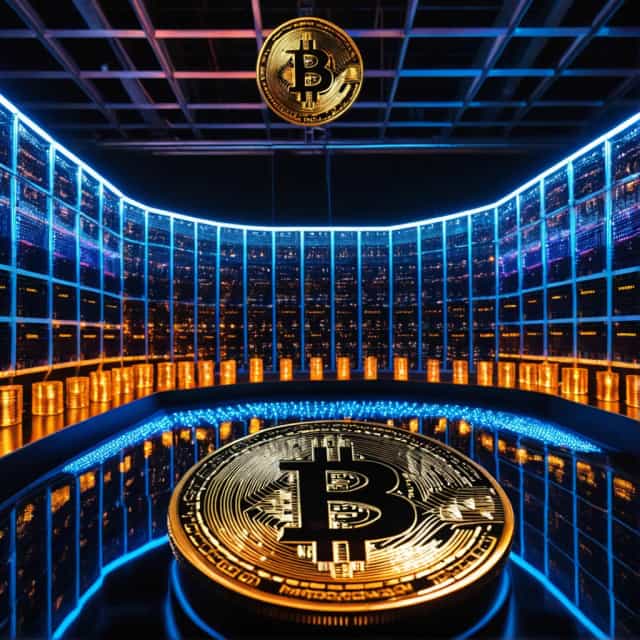
Image source: Block Media
South Korean Stocks Extend Rebound Amid Robust Retail Buying
South Korea’s benchmark KOSPI continued its rally for the second consecutive session on Monday, driven largely by strong retail investor activity. However, upward momentum was capped as traders braced for a domestic market lull due to an extended holiday period.
According to the Korea Exchange, as of 9:23 a.m. local time, the KOSPI was trading at 3,439.26, up 8.05 points (0.23%) from the previous close. The index opened at 3,436.00, reflecting a 0.14% rise from Friday’s closing level of 3,431.21, before entering a period of intraday volatility.
After reaching all-time highs recently, the KOSPI experienced a pullback following Federal Reserve Chair Jerome Powell’s cautionary guidance, which triggered bearish sentiment globally. However, optimism returned as U.S. markets climbed on September 26, spurred by Personal Consumption Expenditures (PCE) price index data aligning with market expectations. Leveraging that momentum, the KOSPI extended its recovery into Monday’s trading session.
Analysts Highlight Mixed Sentiment and Limited Upside
Market analysts remained cautious about future gains. Han Ji-young, a researcher at Kiwoom Securities, detailed the varied factors influencing South Korean equities. “The strength of U.S. AI and semiconductor stocks has given the market a boost, yet concerns over a potential U.S. federal government shutdown and increased domestic demand for cash withdrawals ahead of extended holidays are creating resistance,” she said.
Han also pointed to other critical considerations, such as discussions about Korea-U.S. currency swaps and increased foreign activity in large-cap stocks, which could reshape market sentiment in the near term.
Retail investors were the main driver of Monday’s gains, purchasing 281.7 billion won ($210.8 million) worth of shares in the main board market. Conversely, foreign investors and institutional participants were net sellers, dumping 14.3 billion won and 244.7 billion won, respectively.
Sector-wise, the market saw gains in medical precision equipment (+1.17%) and transportation equipment & components (+1.34%), while transportation & warehousing (-0.68%) and telecommunications (-0.26%) underperformed.
Top-Performing and Lagging Blue-Chip Stocks
The performance among the KOSPI’s heavyweights was varied. Samsung Electronics, the market’s flagship company, gained 0.48%, while its semiconductor peer SK Hynix climbed 1.29%. Hanwha Aerospace outperformed with a 2.36% rise. On the downside, financial heavyweight KB Financial fell 0.86%, and internet giant Naver slid 0.73%.
Tech-Heavy KOSDAQ Under Pressure Amid Institutional Selling
While the KOSPI sustained gains, the tech-focused KOSDAQ faced headwinds as institutional and foreign investors exited their positions. The index was trading at 846.52, down 0.19 points (0.02%) from Friday’s closing level. Although the KOSDAQ opened slightly higher at 847.52, dipping less than 0.1%, it quickly lost momentum and slipped into the red.
Retail investors showed resilience in this market as well, making net purchases worth 136.8 billion won. However, institutional and foreign investors sold shares worth 24.8 billion won and 92.7 billion won, respectively, applying downward pressure on the index.
Sectoral movements were mixed, with manufacturing (+0.28%), retail (+0.14%), and publishing (+0.03%) posting modest gains. Declines occurred across general services (-0.97%), transportation (-0.17%), and food & tobacco (-0.05%), reflecting continued sector-specific challenges.
Key stock movements included notable gains for Pharm Research (+2.76%), while prominent names like Alteogen (-1.72%), Samchundang Pharmaceutical (-1.14%), and HLB (-1.03%) saw declines.
Korean Won Weakens Slightly Against the Dollar
In the currency markets, the Korean won experienced slight depreciation against the U.S. dollar. The won-dollar exchange rate stood at 1,400.0 won, up 1.3 won from the previous week’s closing rate of 1,398.7.
Persistent global uncertainties, including geopolitical risks and looming major economic announcements, created a cautious tone among investors. While some speculated that upcoming currency swap talks could impact forex markets, most remain focused on broader macroeconomic events anticipated in the days ahead.
Outlook: Cautious Optimism with Challenges Ahead
South Korea’s stock market showed resilience at the start of the week, recovering some of the ground lost in prior sessions. Retail buyers, particularly in large-cap stocks, injected fresh optimism while U.S. market trends provided a supportive backdrop. However, challenges such as institutional selling on the KOSDAQ, currency volatility, and potential disruptions from U.S. economic policies continue to weigh on sentiment.
As attention shifts toward global market developments and domestic economic announcements after the holidays, investors remain on alert to balance optimism with prudence.










